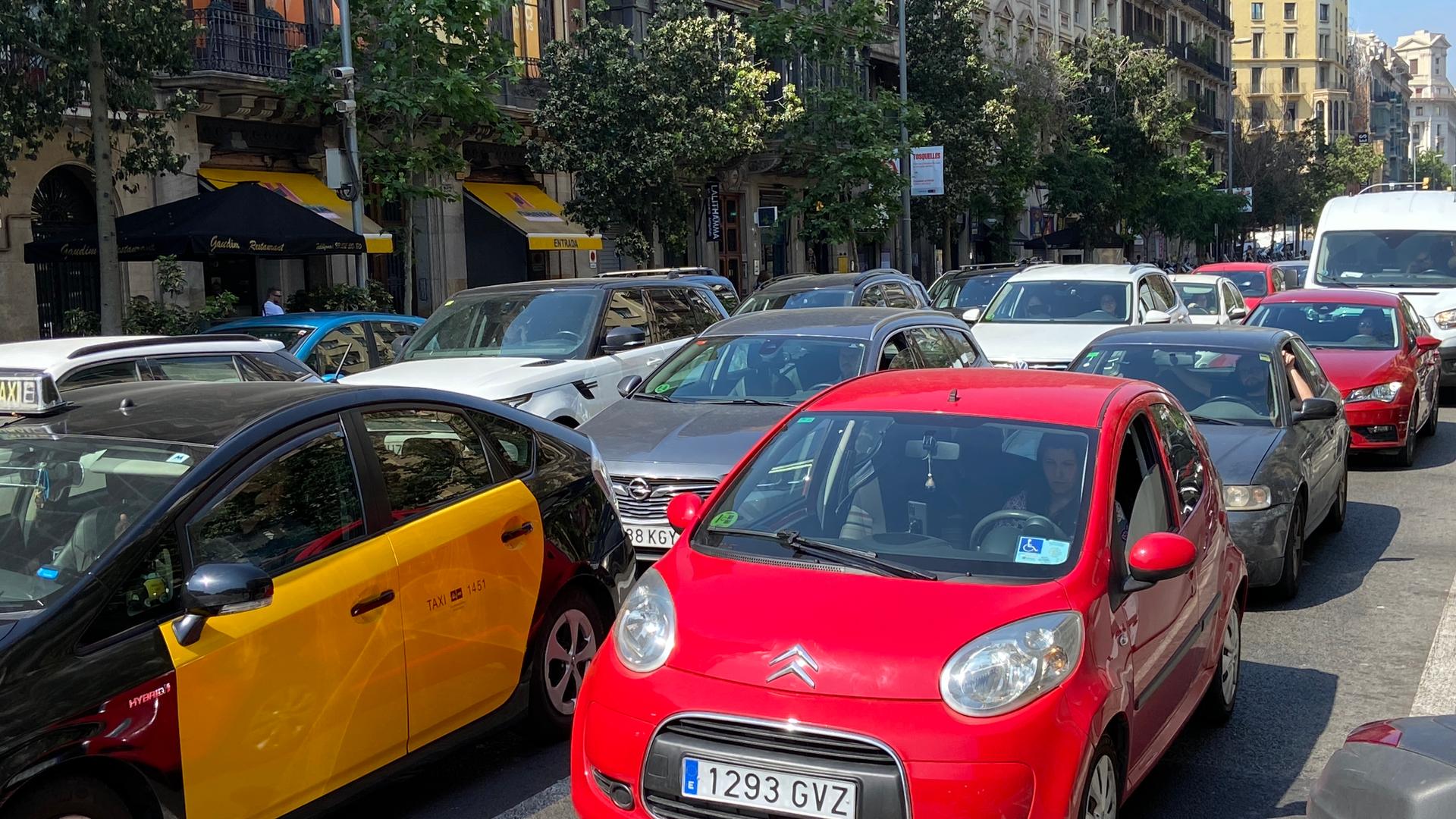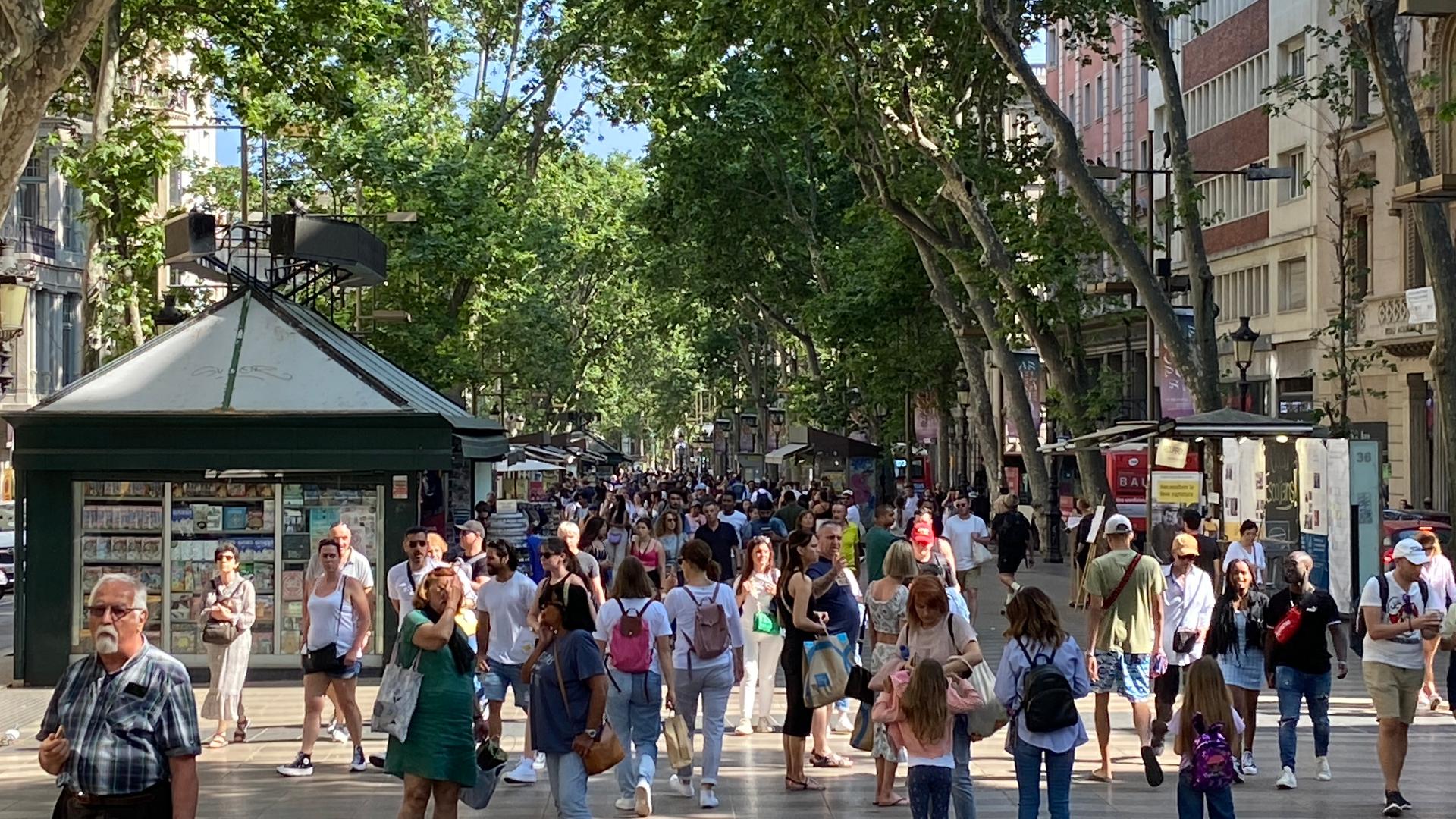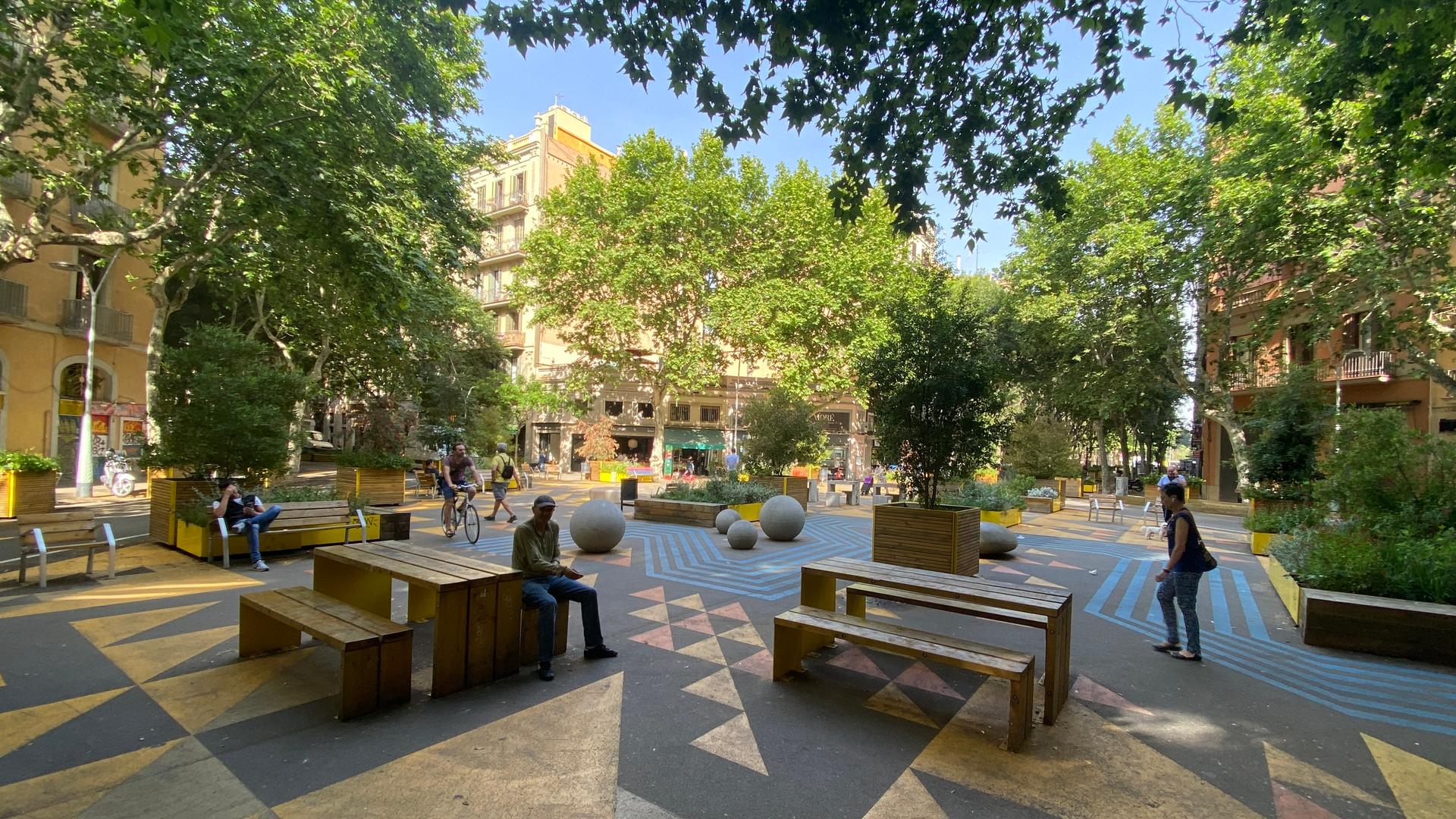Barcelona is one of Europe’s loudest cities. It’s trying to turn down the volume.
Be careful of what you listen to: Researchers say that stress caused by sustained, loud noise can shorten your life.
In Europe, the World Health Organization says that noise contributes to some 16,000 deaths each year. Now, some of the loudest cities, such as Barcelona, are trying to turn the volume down.
Researcher Sasha Komenko said that it’s important to distinguish between sound — say, pleasant music or birdsong — and noise. The latter, such as the sustained rumble of traffic, has been labeled a silent killer.
Related: Refugees find a welcome in Catalan Guissona’s ‘Little Ukraine’

“Because, I think we don’t perceive that it acts on our health,” Komenko said. “But when you work on these things, it makes you more aware.”
Komenko studies noise at the Barcelona Institute for Global Health. Her team has compiled noise data from nearly 700 cities in Europe. She said that analysis suggests that around 60 million adults in European cities are exposed to noise that’s harmful to health.
“We base ourselves on the recommendations of the World Health Organization,” she said. “And they recommend that noise pollution does not exceed 53 decibels in a 24-hour period.”
Barcelona’s traffic leaves that in the dust. Then, there’s construction noise, music, talkative tourists and the airplanes they fly in on. The cacophony sometimes seems limitless.
“The basic thing is that noise creates a stress response.”
“The basic thing is that noise creates a stress response,” fellow researcher Maria Foraster said.

Related: How US sailors kicked off Barcelona’s tourism industry in the 1950s
She said that people should be on guard against so-called white noise, or background noise that you sometimes forget is even there.
“White noise, over time, can harden our arteries, or cause hypertension,” she said. “And little by little, this contributes also to changes in metabolism and cardiovascular disease.”
Barcelona’s city government is trying to dampen the racket. The Spanish city is a pioneer in creating urban “superblocks” — entire sections of downtown revamped for pedestrians.
Cars can’t exceed 7 miles per hour, which dissuades drivers from passing through. Planters and park benches are everywhere.
Ana Lopez, 82, sat on one of them, her cane and grocery bag next to her.
Related: Catalonia pardons women accused of witchcraft 400 years ago
“For pedestrians, this is great,” she said. “Because now we have a place to rest, and you can walk around without stress.”
The city has plans for more superblocks and, possibly, to tax cars entering the city from elsewhere. This summer, the mayor’s installing experimental sound traps, like radar for noise, to identify vehicles exceeding noise limits.

In the meantime, though, the noise drones on — often, well above those 53 decibels where health concerns start.
The endless din drives some people to what might just be the quietest place in town: a meditation center called Silenci, or Silence, Barcelona.
On a recent evening, a dozen men and women took a silent yoga class.
Silenci owner Susana Lopez said that some 8,000 people have come through her doors in the last few years looking for peace.
Related: Residents remember their losses as they rebuild from La Palma’s volcanic eruption
“We try to be an oasis within the city,” she said. “The folks who come in suffer from anxiety, stress, insomnia.”
Lopez encourages people to find inner silence, to deal with the outside cacophony. In the meantime, though, there are always earplugs.
